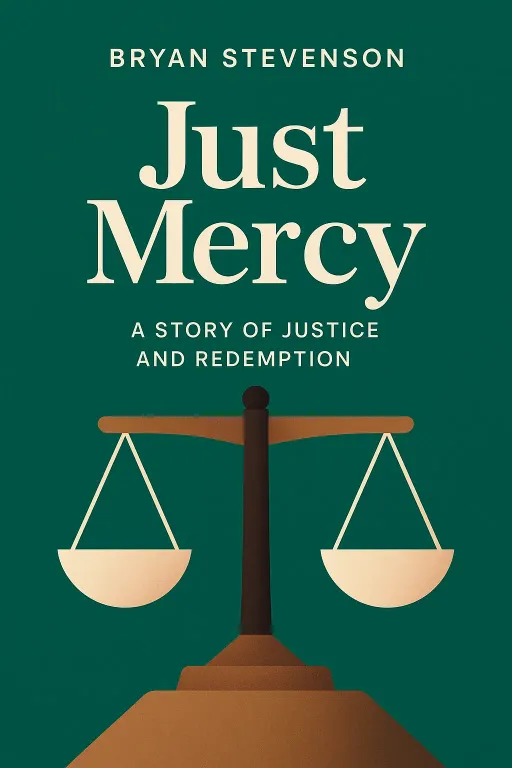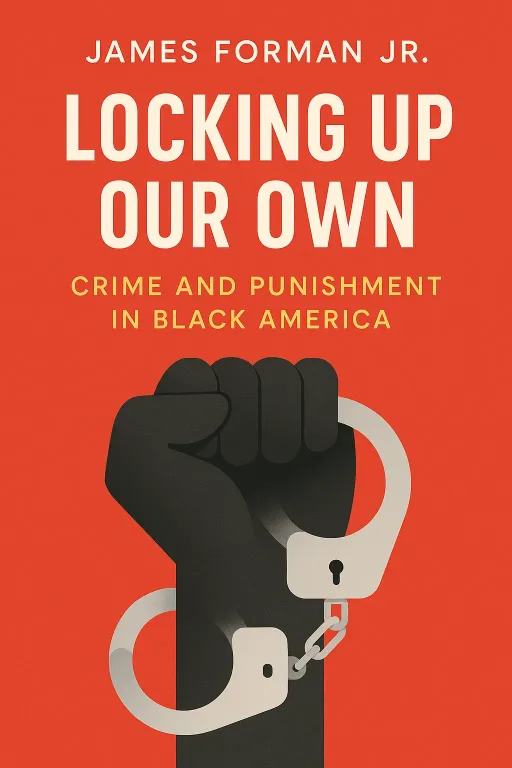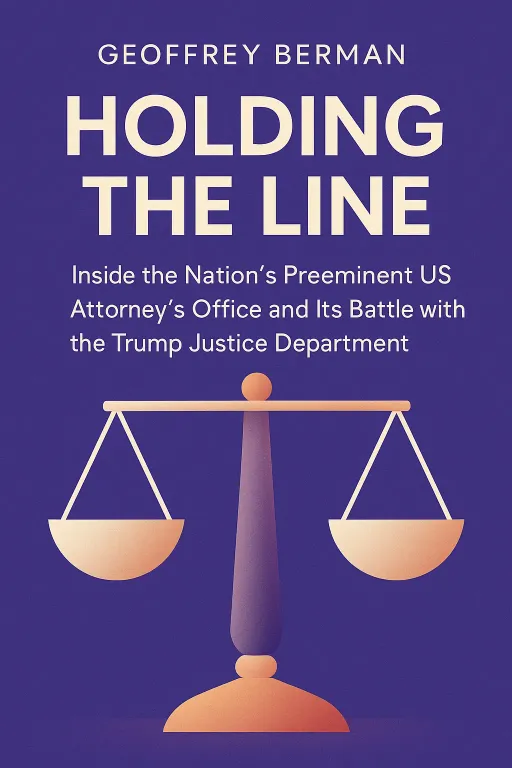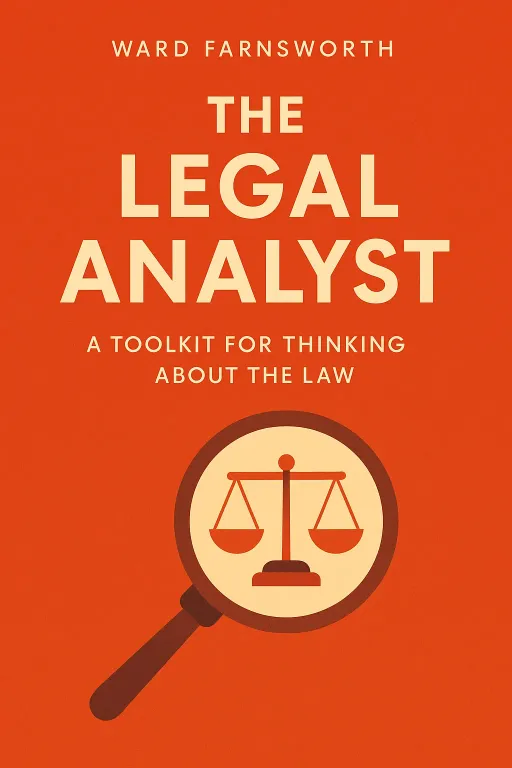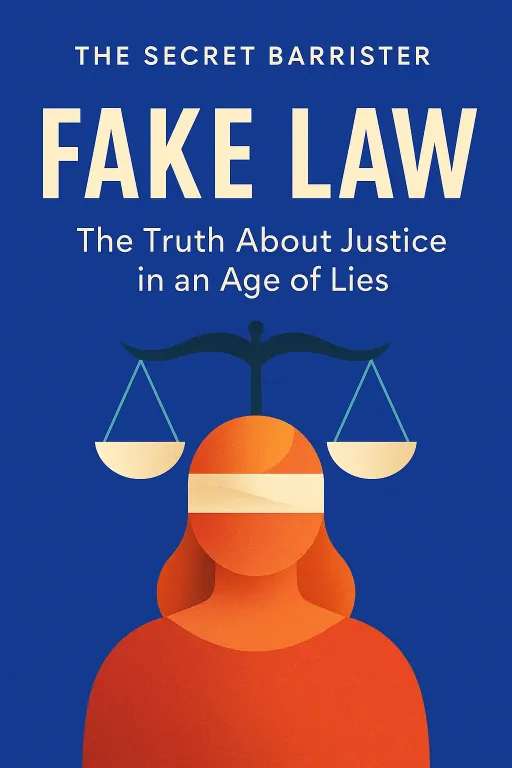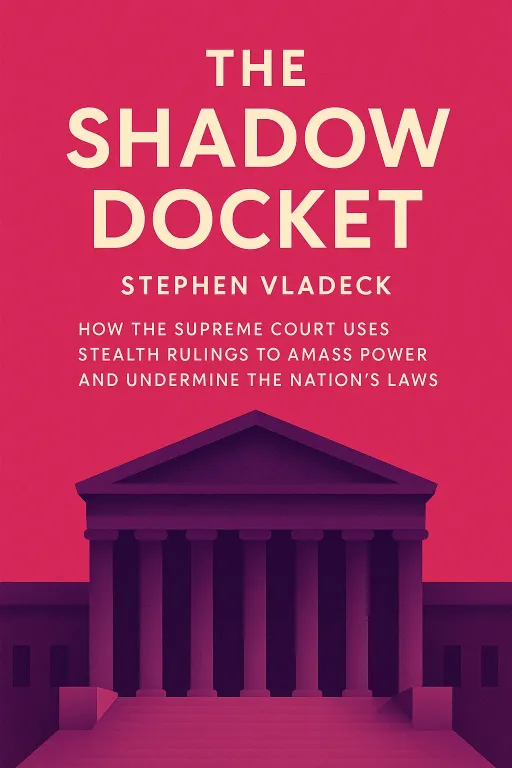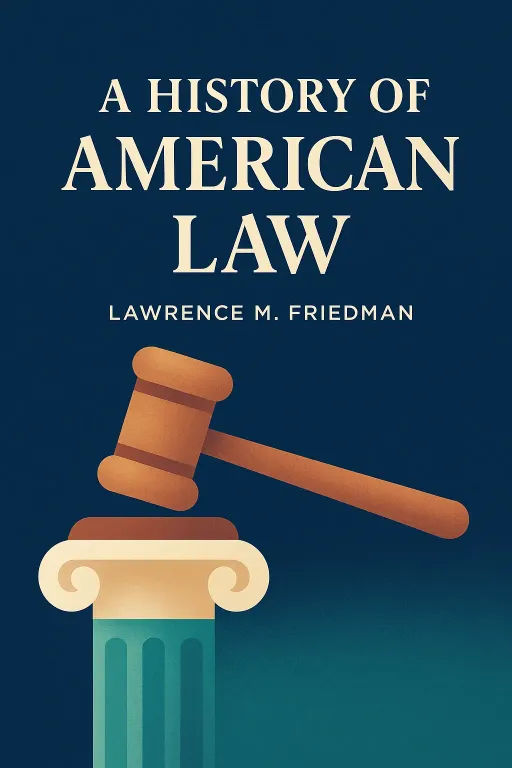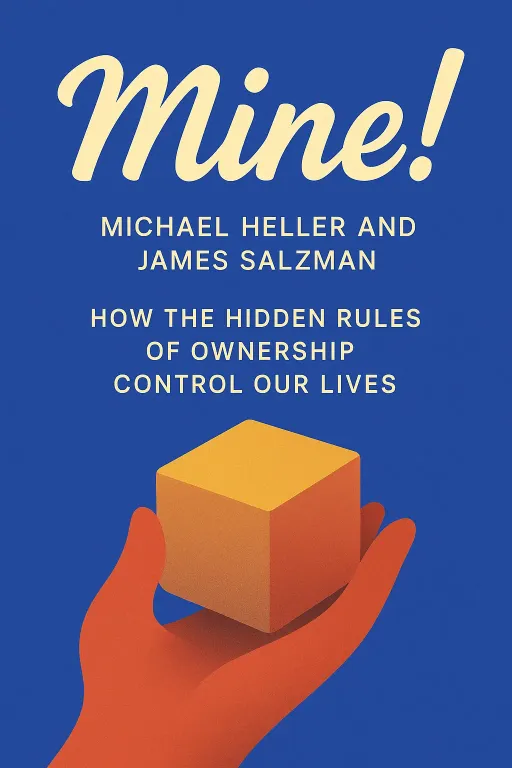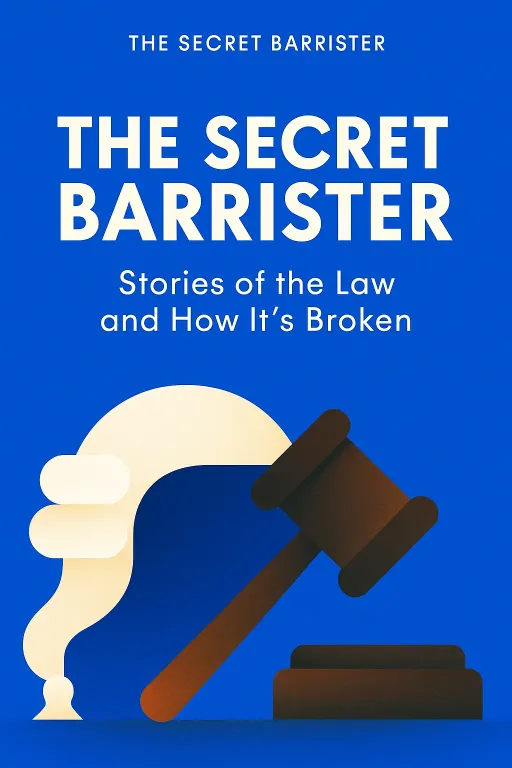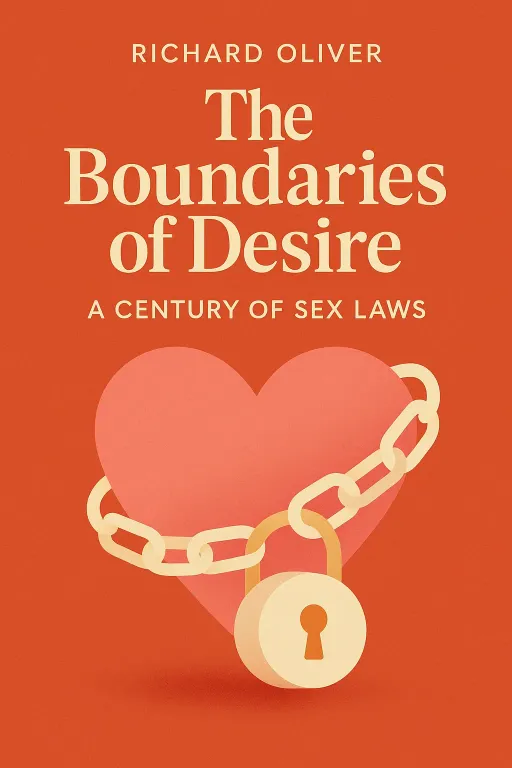
Sex, Lies, and Lawbooks
12 minBad Laws, Good Sex, and Changing Identities
Golden Hook & Introduction
SECTION
Michael: Here’s a wild thought: the law that sent the first black heavyweight boxing champion to prison wasn't for fighting. It was for crossing a state line with his white girlfriend. That same legal playbook was later used against Martin Luther King Jr. and, in a way, Julian Assange. Kevin: Hold on, what do a boxer and a civil rights leader have in common with a hacker? That sounds like the setup for a very strange joke. Michael: It’s no joke, and it’s the central, explosive idea in Eric Berkowitz's book, The Boundaries of Desire: A Century of Sex Laws. He argues that for the last hundred years, sex laws have rarely been about morality. They’ve been about power. Kevin: The Boundaries of Desire. I like that title. It sounds both philosophical and a little dangerous. Michael: It is. And Berkowitz is the perfect person to write this. He's not just a journalist; he's a human rights lawyer who has represented people persecuted for their sexuality. He's seen firsthand how these 'bad laws' can destroy lives. Kevin: Wow, so he's not just an academic observer. He's been in the trenches. That makes this feel much more urgent. Let's start with that first story you mentioned, the boxer. How on earth does a law about your love life become a political weapon?
The Weaponization of Sex: How Law Becomes a Tool of Power
SECTION
Michael: It’s shockingly easy. Let's take Jack Johnson, the boxer. In the early 1900s, he was a phenomenon—a black man who was the undisputed heavyweight champion of the world. He was talented, he was rich, and he was unapologetic. And to the horror of white society, he openly dated white women. Kevin: I can already see where this is going. They couldn't beat him in the ring, so they decided to beat him in the courtroom. Michael: Exactly. They used a piece of legislation called the Mann Act. On paper, it was designed to stop human trafficking—prohibiting the transport of women across state lines for "immoral purposes." It sounds noble, right? But in reality, "immoral purposes" was a vague, catch-all phrase that could mean anything prosecutors wanted it to mean. For Johnson, it meant taking his white girlfriend on a train. Kevin: That's unbelievable. So a law meant to protect women was twisted to enforce racial segregation. Michael: It was a perfect weapon. Johnson was convicted and his career was ruined. But this wasn't a one-off. Decades later, the FBI, under J. Edgar Hoover, turned this same playbook on Martin Luther King Jr. Kevin: Okay, now I'm really curious. What was the FBI's official justification for going after MLK's private life? They couldn't just say, "We don't like the Civil Rights Movement," could they? Michael: Their public excuse was that King might be influenced by communists. But when they couldn't find any evidence of that, they pivoted. They wiretapped his hotel rooms, recorded his extramarital affairs, and gathered what they called a "filthy" audio tape. Kevin: And what did they do with it? Michael: This is the truly chilling part. They didn't just leak it to the press. They sent the tape directly to King, along with an anonymous letter. The letter called him a "fraud" and an "evil, abnormal beast." It ended by telling him there was only one thing left for him to do, and he knew what that was. They were counseling him to commit suicide. Kevin: A government agency tried to blackmail a civil rights leader into killing himself. That's a level of malice that's hard to comprehend. Did it work? Did it damage the movement? Michael: King was deeply distressed, of course. He told his friends, "They are out to break me." But he didn't back down. The FBI's plan failed. What it reveals, though, is this terrifying pattern Berkowitz lays out: when you can't attack someone for their ideas or their actions, you attack them for their desires. It's a tactic that transcends ideology. You see it with Julian Assange, where sex crime allegations in Sweden conveniently emerged right after WikiLeaks published classified US documents, effectively derailing the conversation. Kevin: It's like a political smear campaign, but with the full force of the law behind it. The accusation itself becomes the punishment, whether it's true or not. It makes you realize that the "immorality" they're prosecuting is just a proxy for something else they hate—whether it's racial progress, political dissent, or something else entirely. Michael: Exactly. The law becomes a mask for prejudice. And this idea of the state using law to control private lives wasn't just for political enemies. For centuries, it was embedded in the most intimate space of all: marriage.
The Sanctity of the Home: Unraveling the Myth of Marital Privacy
SECTION
Kevin: That feels like a huge leap. How does a political weapon used by the FBI connect to the average person's marriage? Michael: Because the same principle of power and control applies. Berkowitz brings up a quote that just stops you in your tracks. In 1979, during a debate in California about marital rape, a state senator stood up and asked, "If you can’t rape your wife, who can you rape?" Kevin: Hold on. 1979? That's the year the Sony Walkman was released. That's not some dusty 18th-century law. A sitting politician said that in modern times? Michael: He did. And it perfectly captures a legal doctrine that had existed for centuries: the "marital rape exemption." The idea was that by getting married, a woman gave her husband irrevocable consent to sex. A husband literally could not, by legal definition, rape his wife. She was his property. Kevin: So the law basically treated a marriage certificate like a permanent consent form you could never revoke. That's insane. Michael: It gets worse. The courts actively protected this idea under a principle called the "sanctity of the domestic circle." It sounds so wholesome, but what it meant was that the law would not interfere in the home, even in cases of violence. Berkowitz tells the story of a man in 1874, Richard Oliver, who brutally whipped his wife with switches. He was fined ten dollars, and he appealed it. The state supreme court upheld the fine but wrote that courts should only intervene in cases of "permanent injury" to protect that "sanctity." Kevin: So as long as you didn't leave a permanent scar, you were free to "chastise" your wife. The "sanctity of the home" was just legal code for "what happens in the home, stays in the home," even if it's brutal violence. Michael: Precisely. And this wasn't fully dismantled until shockingly recently. The book highlights the case of Mario Liberta in New York in 1984. He was estranged from his wife, Denise, and had a court order to stay away from her. He lured her to a motel and brutally raped her in front of their two-year-old son. Kevin: And let me guess, his defense was that they were still technically married? Michael: That was his exact argument. And he won in the lower court. It wasn't until the state's high court heard the case that the tide turned. The court finally declared that "a married woman has the same right to control her own body as does an unmarried woman." Kevin: Wow. That seems like the most obvious statement in the world, but it was a landmark legal victory. It's horrifying to think about how many women lived and died under the old rule, with no legal recourse at all. Michael: It shows how deeply the idea of male ownership was embedded in our legal DNA. The law wasn't just lagging behind social norms; it was actively enforcing a system of domestic tyranny. Kevin: Okay, so we've seen the law used as a weapon against political figures and to enforce control within marriage. Where else did this deep-seated fear of sex lead the law astray? It feels like there's a pattern of targeting anyone who doesn't fit a very narrow mold.
From Sickness to Security Risk: The Shifting Identity of Homosexuality
SECTION
Michael: You've hit on the next major theme. The law's definition of who is "dangerous" is constantly shifting. And no group illustrates this better than homosexuals. Berkowitz traces this bizarre and terrifying evolution of their identity in the eyes of the law. First, homosexuality was a sin. Then, with the rise of psychology, it became a "sickness" or a "mental illness." Kevin: A sickness you could be locked up for, I'm guessing. Michael: Absolutely. People were institutionalized. But the most surreal transformation happened during the Cold War. Suddenly, homosexuality wasn't just a sin or a sickness—it became a national security risk. Kevin: A security risk? How did they even make that logical leap? Michael: This was the era of the "Lavender Scare," a government-led witch hunt for gay employees that ran parallel to McCarthy's Red Scare. The "logic," if you can call it that, was that gay people were inherently emotionally unstable and, because their lives were secret, they were more susceptible to being blackmailed by Soviet agents. Kevin: Was there any evidence for this? Or was it just pure paranoia? Michael: It was almost entirely paranoia, fueled by a few isolated historical cases. For example, there was an Austrian colonel named Alfred Redl who, back in 1913, was blackmailed by the Russians over his homosexuality and became a spy. This one case was used for decades as "proof" that all gay people were potential traitors. Kevin: That’s a staggering generalization. So they built an entire system of persecution on a foundation of fear. Michael: They wrote it into law. In 1953, President Eisenhower signed Executive Order 10450. It officially added "sexual perversion" to the list of reasons someone could be fired from a federal job. It wasn't about job performance; it was about identity. Thousands of people lost their careers. Foreign service officers, codebreakers, administrators—all fired simply because of who they were. Kevin: It's the same pattern again. Find a group to fear, invent a "logical" reason to justify that fear, and then write it into law. It's terrifyingly simple. You create a category of person—the "security risk"—and then you can do whatever you want to them in the name of public safety. Michael: And it creates this self-fulfilling prophecy. The state makes homosexuality a secret, shameful thing, and then uses the existence of that secret as a justification for persecution. It’s a perfect circular trap. Kevin: It’s a powerful reminder that when law is driven by fear instead of facts, it becomes a tool of immense cruelty. The boundaries of desire, as the book calls them, seem to be drawn by the boundaries of our fears.
Synthesis & Takeaways
SECTION
Michael: That's the perfect way to put it. Whether it's targeting a political enemy like MLK, controlling a wife within a marriage, or persecuting a minority during the Lavender Scare, the pattern Berkowitz uncovers is the same. Sex law is rarely just about sex. It's a mirror reflecting society's deepest anxieties—about race, about power, about gender, about who belongs and who doesn't. Kevin: The law becomes a stage where we act out our collective panics. And the people who get hurt are the ones who don't fit the script. Michael: Right. The book ends with this really profound and unsettling thought. It quotes a line about the "autoerotic pleasure of despising others." It suggests that the drive to condemn people for their sexuality is, in itself, a kind of dark, satisfying impulse. The real danger isn't desire; it's our own desire to punish. Kevin: That's a heavy thought. It makes you wonder what modern anxieties are being written into our laws today under the guise of morality. What will people in 50 years look back on with the same disbelief we feel about marital rape laws or the Lavender Scare? Michael: It's a powerful question, and one that Berkowitz leaves us with. The boundaries are always shifting, and we're the ones drawing them. It’s a huge responsibility. We'd love to hear what you think. Join the conversation on our social channels and share your thoughts on where you see these boundaries being drawn today. Kevin: This is Aibrary, signing off.
